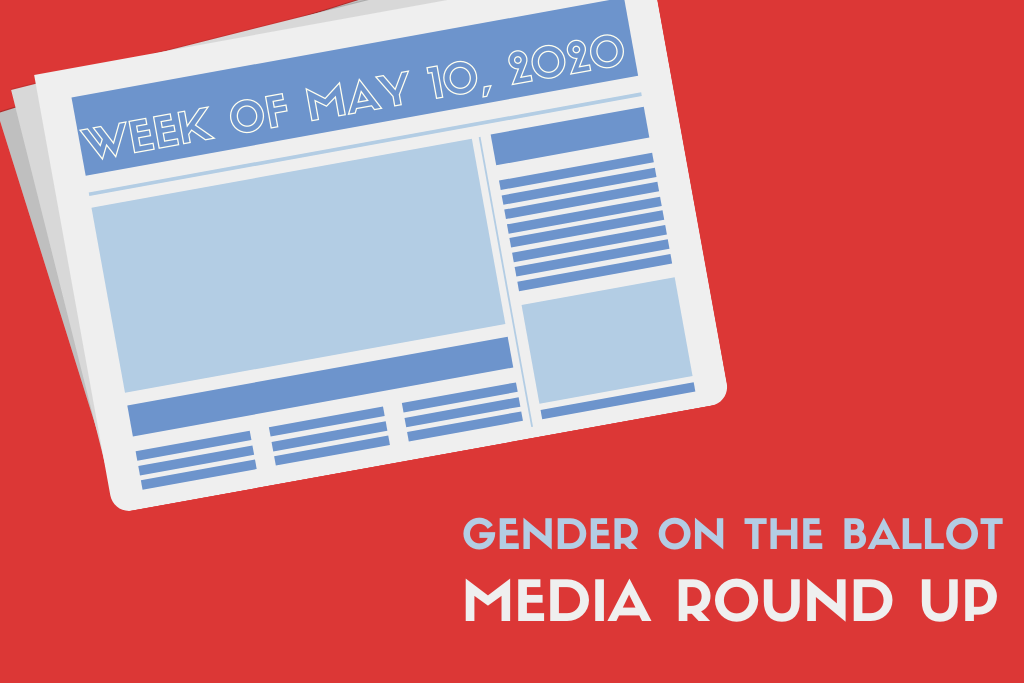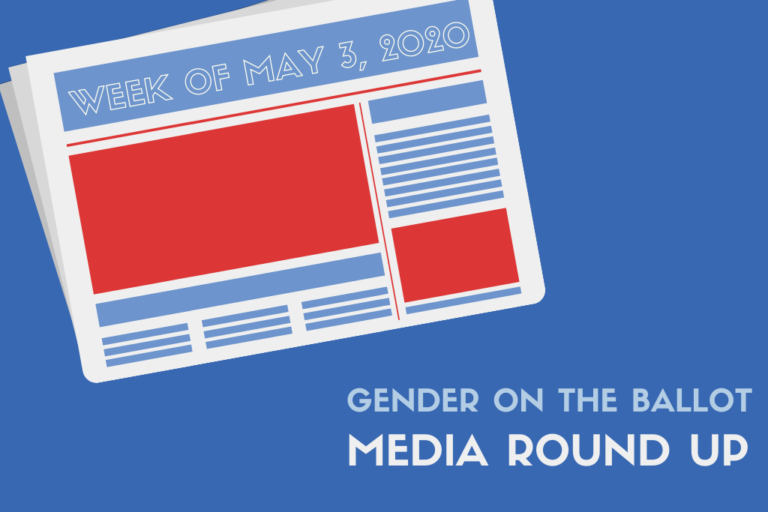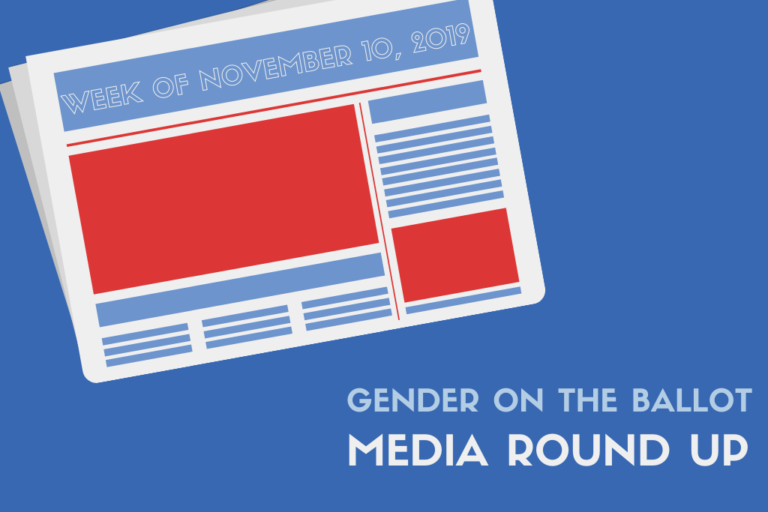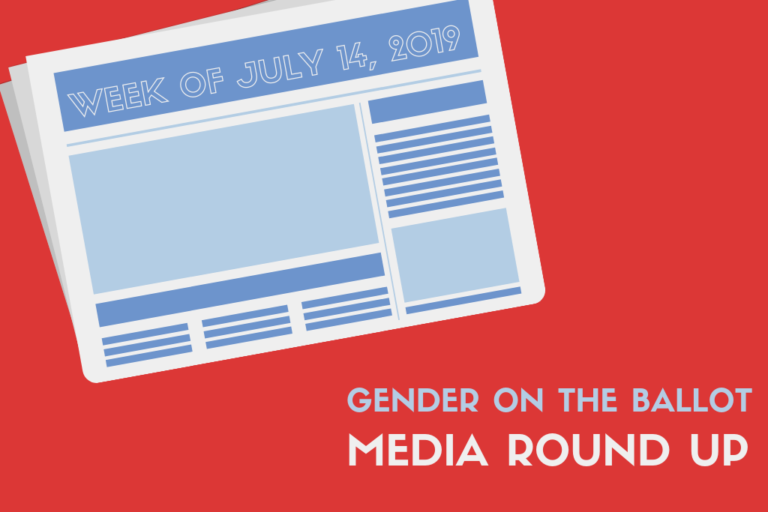Happy Friday! Welcome to our Media Round Up. Each week we’re collecting and sharing our…
Media Round Up: Week of May 10th

Happy Friday! Welcome to our Media Round Up. Each week we’re collecting and sharing our favorite gender + politics stories. Here’s what caught our eye this week:
How to think about Biden’s choice for vice president
Paul Waldman, The Washington Post
Discussions continue about who Joe Biden should name as his vice presidential pick. Writer Paul Waldman argues that the VP won’t actually need to win votes on the national level – she just needs to positively affect how people see Biden. Past picks like Dick Cheney, Mike Pence, and even Biden himself have helped reassure voters and round out the ticket.
You can read the full article here.
More women are running for House seats than ever. Even 2018.
Caroline Kitchener, The Lily
In 2020, women are already breaking barriers. 490 women have already filed to run for U.S. House seats, a new high after 2018. 195 of those are Republican women, far exceeding the previous high of 133 in 2010. The ceiling could even continue to rise, as 14 states haven’t reached their filing deadlines.
You can read the full article here.
Will COVID-19 allow more women to become leaders?
Stacey Epstein, Fast Company
The health pandemic has allowed us to be more honest about the hectic juggling act parents do, especially mothers. The pandemic has created a new normal in the workplace, allowing women to be more flexible with their work-life balance. Stacey Epstein hopes that these changes will be long-term, creating a new mindset that empowers women to push past barriers and thrive in leadership roles.
You can read the full article here.
Will covid-19 lead to men and women splitting care work more evenly?
Sarah Keyes, The Washington Post
Professor Sarah Keyes writes, “In 2020, the centennial year of the 19th Amendment that secured women’s right to vote, covid-19 is threatening to deny or abridge women’s economic and professional advancement.” Stereotypes have funneled women into traditional jobs in sectors like health and child care, and historic crises haven’t changed that. With this pandemic, we may have a chance to acknowledge and change these norms.
You can read the full article here.
‘Mrs. America’ reminds us that more women in politics won’t necessarily mean more liberal policies
Leandra Zarnow, The Washington Post
The 1960s and ‘70s, American women of all political positions dealt with their changing social and economic status. The new miniseries “Mrs. America” tells the story of some of these women, including Phyllis Schlafly and Bella Abzug. While they held opposing political views, neither questioned their place in politics, instead working to promote their causes. Click to read more about them.
You can read the full article here.
Five stories not enough? Sign-up for the Women & Politics Institute’s weekly newsletter, the WeLead Reader.






